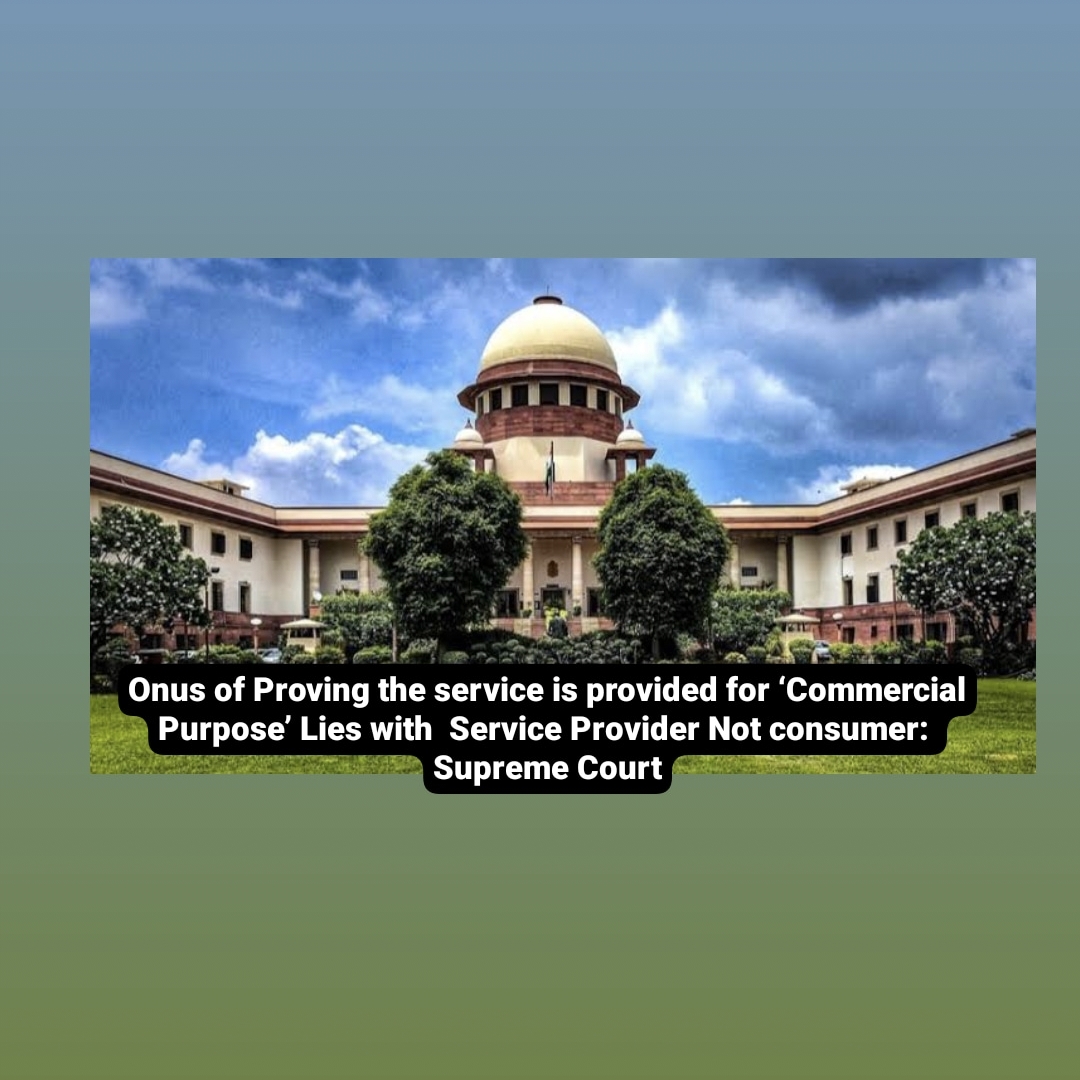Case Title: SHRIRAM CHITS (INDIA) PRIVATE LIMITED EARLIER KNOWN AS SHRIRAM CHITS (K) PVT. LTD Versus RAGHACHAND ASSOCIATES
Case No: CIVIL APPEAL NOS. Of 2024 (@ SPECIAL LEAVE PETITION (CIVILI NO. 15290 OF 2021)
Decided on: 10th May , 2024
Quorum: HON’BLE JUSTICE Mr.Aravind Kumar
Facts of the case
The conflict concerned a subscriber and a chit fund company. The subscriber, Raghachand Associates, wanted the return of the money placed, alleging that Shriram Chits had unlawfully halted the chit operation in 1996. Shriram Chits declined to pay back, claiming the sum had been deducted from unpaid debt. The Consumer Protection Act of 1986’s application had to be determined by whether the service was purchased for a commercial purpose, which was at the heart of the issue. The Supreme Court decided that the service provider has the burden of proof.
Issues
1. Whether under the Consumer Protection Act, 19861, who is responsible for proving whether a service was purchased for a commercial purpose?
2. Whether the despite of service provider’s assertion that the service was provided for a commercial purpose, is the complaining company still regarded as a “consumer” for the purposes of the customer Protection Act?
Legal Provisions
• Section 2 (1) (d) Consumer Protection Act of 1986.According to Section 2 (1) (d) of the Act, a consumer is an individual who:Buys goods or hires any service for personal use (not for commercial resale).Uses goods or services with the approval of any buyer or service provider.Uses goods and services to earn a livelihood through self-employment
Appellant’s Contentions
Raghachand Associates was not a “consumer,” according to Shriram Chits, because the service was used for business purposes. The chit fund argued that the Consumer Protection Act precluded the complaining company from pursuing any remedies. They contended that because the service was commercial in character, the complainant was not covered by the Consumer Protection Act of 1986 as a “consumer.”
Respondent’s Contentions
Raghachand Associates demanded that their subscription money be returned, arguing that they were entitled to protection under the Consumer Protection Act. Raghachand Associates, the respondent, argued that they qualified for protection under the 1986 Consumer Protection Act. They said that they had used Shriram Chits’ services for purposes that were covered under Act, rather than for a profit. The Supreme Court decided in favor of the respondent, holding that the service provider has the burden of demonstrating that the service was used for a business purpose
Court Analysis and Judgement
The Supreme Court ruled that the service provider bears the burden of demonstrating that the service was obtained for a business purpose. The Court underlined that the Consumer Protection Act is legislation that is favorable to consumers and that the service provider is not allowed to negatively impact the consumer. The Indian Supreme Court rendered a decision in support of Raghachand Associates, the respondent. The Court determined that Shriram Chits, the service provider, has the burden of demonstrating that a service was acquired for a commercial purpose. Under the Consumer Protection Act of 1986, this was a landmark decision that emphasized the defense of consumer rights.
“PRIME LEGAL is a full-service law firm that has won a National Award and has more than 20 years of experience in an array of sectors and practice areas. Prime legal fall into a category of best law firm, best lawyer, best family lawyer, best divorce lawyer, best divorce law firm, best criminal lawyer, best criminal law firm, best consumer lawyer, best civil lawyer.”
Judgement Analysis Written by – K.Immey Grace
Click here to read the judgment


